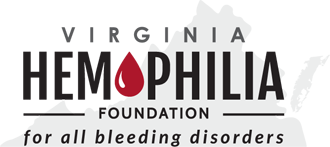Becky Bowers-Lanier | VHF/HACA Advocacy Consultant
The 2017 General Assembly session is now history, with adjournment on Saturday, February 25, 2017. It was a fast and furious 46-day session, and we punctuated it by our own Advocacy Training and “Richmond Days” on Monday, January 16th. Many thanks to all of you who came to the advocacy training on Sunday, the 15th, and stayed for visits at the General Assembly Building on the 16th! Your presence
means so much to our community, and I cannot thank you enough for that.
As I indicated above, the General Assembly session is over. One final job remains, and that will occur on Wednesday, April 5, when legislators return for their “reconvened” session. In that one-day session, legislators will review the Governor’s recommendations on bills (these are usually technical in nature) as well as the bills he vetoes. Overriding a gubernatorial veto requires a 2/3 vote in both the House of Delegates and the Senate—a hard hill to climb since neither house has a 2/3 Republican majority. Keep your eye on the newspapers to read about proposed gubernatorial actions.
The session has been punctuated by some of the usual political issues that play to the political bases, especially true in this session because the statewide (governor, lt. governor, and attorney general) offices, and all 100 members of the General Assembly, will stand for election in November. Consequently, we have seen on progressive side measures to raise the minimum wage, raise the felony threshold, expand/restore reproductive rights, protect immigrants/refugees, and assure equal treatment for all individuals regardless of race, ethnicity, religion and gender orientation. On the socially conservative side, we’ve seen measures to safeguard religious freedom and beliefs, protect the unborn, be strong on law and order including the Second Amendment, and protect American citizens from terrorism.
Neither side has been particularly successful in achieving passage of these bills. The progressive bills failed in committees while the conservative bills that passed both houses will most likely be scrutinized heavily by the Governor, who can use his veto pen.
Our legislative track record wasn’t successful this session. Along with other advocates representing chronic health care conditions, we supported two measures related to constraining the use of “step therapy” or “fail first” medication policies imposed by insurers. These bills were HB 1755 (Delegate Glenn Davis) and SB 1408 (Senator Bill DeSteph). Step therapy or fail first protocols require health care providers to prescribe less expensive and generally less effective medications to patients, to save money.
We have heard that the step therapy practice is reaching into the bleeding disorders community; it has been an issue in the treatment of multiple sclerosis and rheumatoid arthritis already. If you or your family members have had to undergo step therapy, please let us know.
Although both bills failed in the General Assembly session, we will be using the time from the close of the 2017 General Assembly session until the 2018 session to educate legislators about step therapy and hopefully garner enough support to pass the measures in 2018.
If you have any questions and if you have any experience with step therapy, please contact Becky Bowers-Lanier, VHF/HACA advocacy consultant, at bowerslanier@gmail.com. Many thanks!
